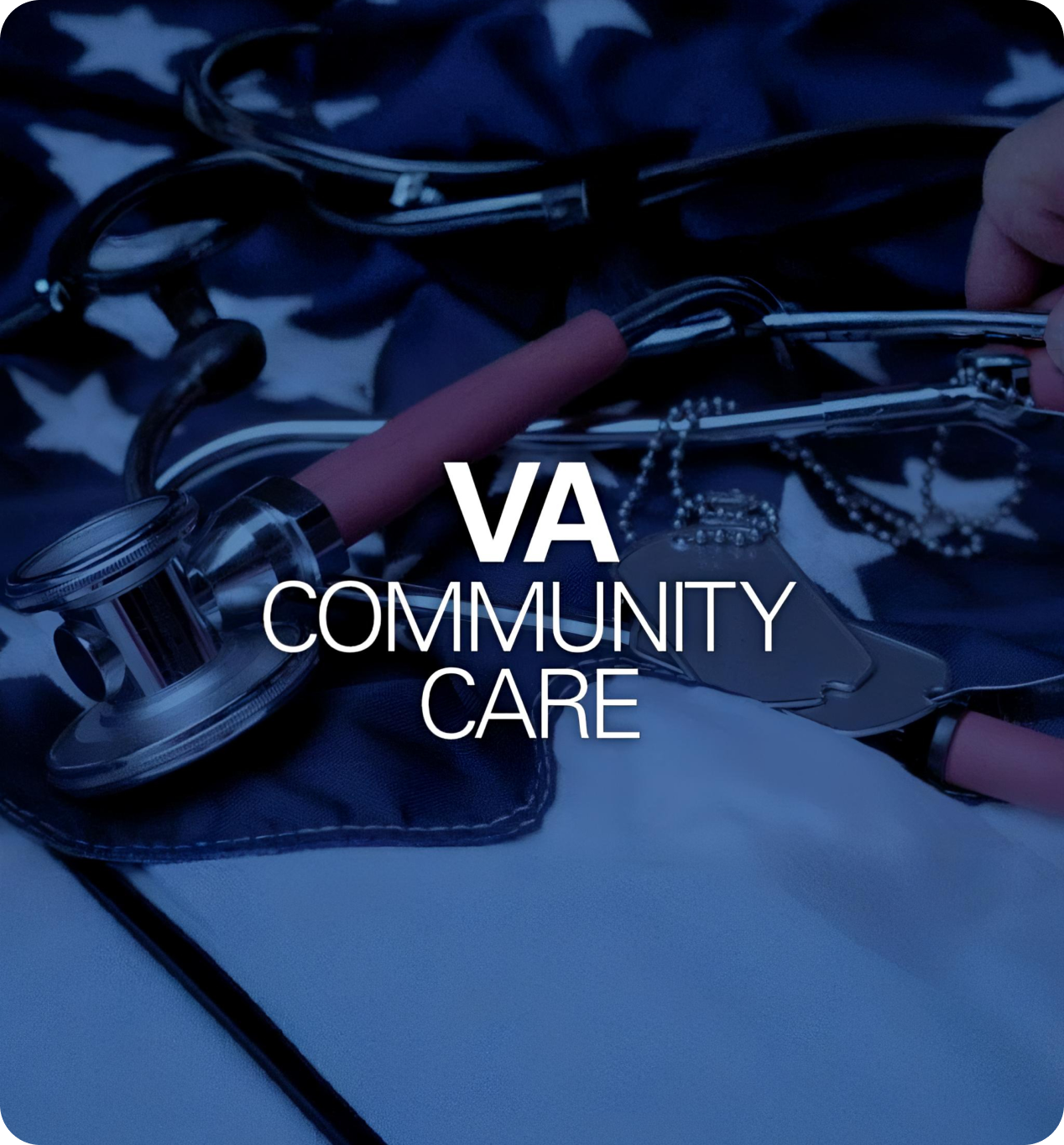Join
The VA Community Care Network
A Guide for Anesthesiology Specialists
In California, independent Physician Assistants (PAs) can bill the Department of Veterans Affairs (VA) for services provided to veterans, but it’s essential to understand the regulations surrounding this process.
Welcome to Veterans Desk, your trusted resource for connecting healthcare professionals with opportunities to serve our nation’s veterans. This guide is specifically designed for anesthesiologists interested in joining the VA Community Care Network (CCN). Whether you specialize in perioperative anesthesia, pain management, or procedural sedation, your expertise plays a critical role in the care of veterans across a broad range of surgical and interventional settings.

Step-by-Step Enrollment in the VA CCN
Verify Your Credentials
- Maintain an active, unrestricted state medical license
- Hold board certification in Anesthesiology (e.g., American Board of Anesthesiology – ABA)
- Maintain current ACLS certification.
- Hold a valid DEA registration if administering controlled substances.
Prepare Required Documents
- Updated CV
- Signed W-9 form
- Malpractice insurance certificate
- Copy of the DEA and state medical license
- ACLS certification documentation
- Surgical or procedural case logs (optional, but can strengthen the application)
Submit Your Application
Apply through the appropriate regional portal based on your location:
Complete Required Training
Required VA trainings may include:
- HIPAA and patient privacy
- VA documentation standards
Safe anesthesia practices in veteran populations
Visit: VA Provider Education & Training
Credentialing & OR Access
- Your application will undergo credential verification and background checks.
- If providing surgical anesthesia, your facility access and OR credentialing may also be reviewed.
Contract & Activation
- Once approved, you’ll receive a contract with reimbursement guidelines and terms of service.
- Upon signing, you can begin accepting CCN referrals for anesthesia and pain-related services.

Why Anesthesiology Specialists Matter to Veterans
Veterans often undergo surgical procedures related to combat injuries, degenerative joint disease, chronic pain, and cancer. Anesthesiologists are vital to ensuring safe and effective care before, during, and after these procedures.
As a VA CCN anesthesiology provider, your role may include:
- Delivering general, regional, or monitored anesthesia for inpatient and outpatient surgeries
- Participating in multidisciplinary pain management programs
- Performing interventional pain procedures such as nerve blocks and spinal injections
- Supporting surgical optimization and perioperative care for high-risk veteran populations
Ensuring procedural safety and sedation during diagnostic or therapeutic interventions


Key Benefits of Joining the VA CCN
- Serve a High-Need Population: Contribute to the surgical and pain management needs of veterans who often have complex medical and surgical histories.
- Collaborative Practice Environment: Work alongside VA surgeons, primary care providers, and pain specialists in coordinated care settings.
- Chronic Pain Interventions: Offer procedures such as epidurals, joint injections, and advanced pain management techniques under VA referral.
- Flexible Practice Locations: Provide anesthesia services in hospitals, ambulatory surgery centers (ASCs), and procedural suites.
- Streamlined Reimbursement: Receive fair-market compensation based on case complexity, anesthesia time, and procedural setting.

Bridging the Gap for Veterans

Educational Support & Career Development
- Attend VA and DoD-sponsored CME on anesthesia safety, pain medicine, and procedural innovation.
- Collaborate in research on post-surgical recovery, chronic pain outcomes, and veteran-specific anesthesia protocols.
- Explore federal programs offering student loan forgiveness for serving rural or underserved veteran populations.

Transitioning from Military Service
- Former military anesthesiologists or pain medicine specialists can convert credentials and expedite enrollment.
- Highlight deployment experience, combat trauma exposure, or service in military surgical units in your application.
Frequently Asked Questions (FAQs)
Can I perform chronic pain procedures under VA referral?
Yes. If you are trained in interventional pain medicine, you may provide nerve blocks, epidural steroid injections, and other pain therapies with appropriate authorization.
Are my services reimbursed for both inpatient and outpatient settings?
Yes. VA reimbursement considers the procedure type, location (hospital vs. ASC), anesthesia time units, and patient complexity
Can I work at both VA and non-VA facilities?
Yes. Many anesthesiologists provide services at community hospitals or surgery centers that receive VA-authorized referrals.
Is telemedicine available for anesthesiology?
While direct anesthesia cannot be provided remotely, pain consultations and preoperative evaluations may be conducted via VA-approved telehealth platforms.

